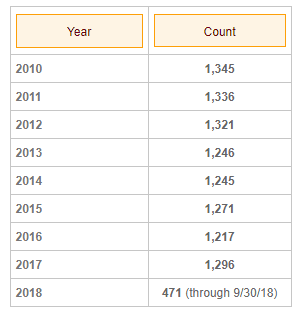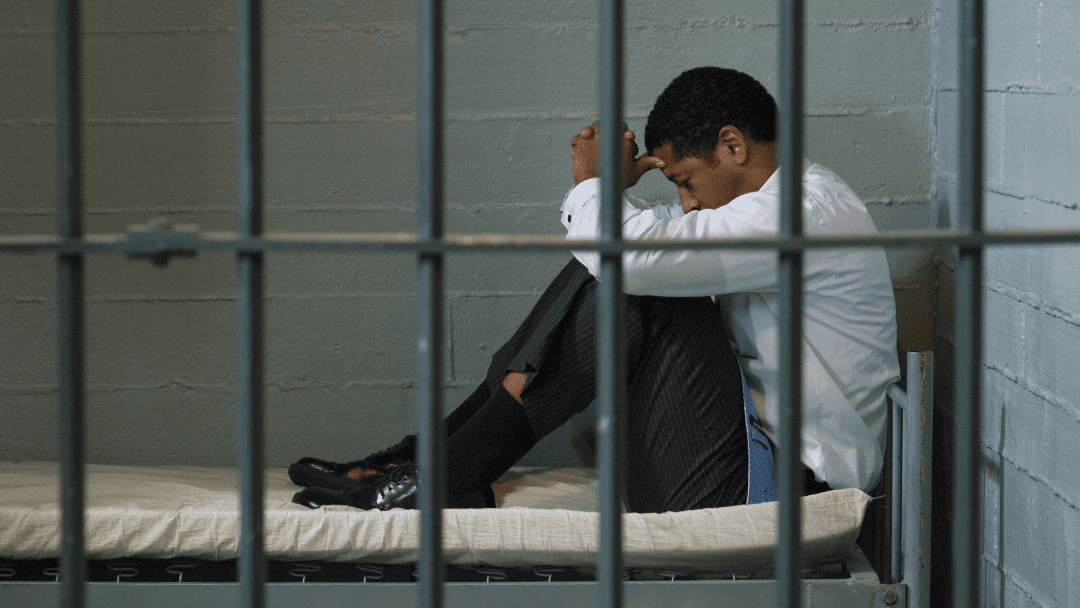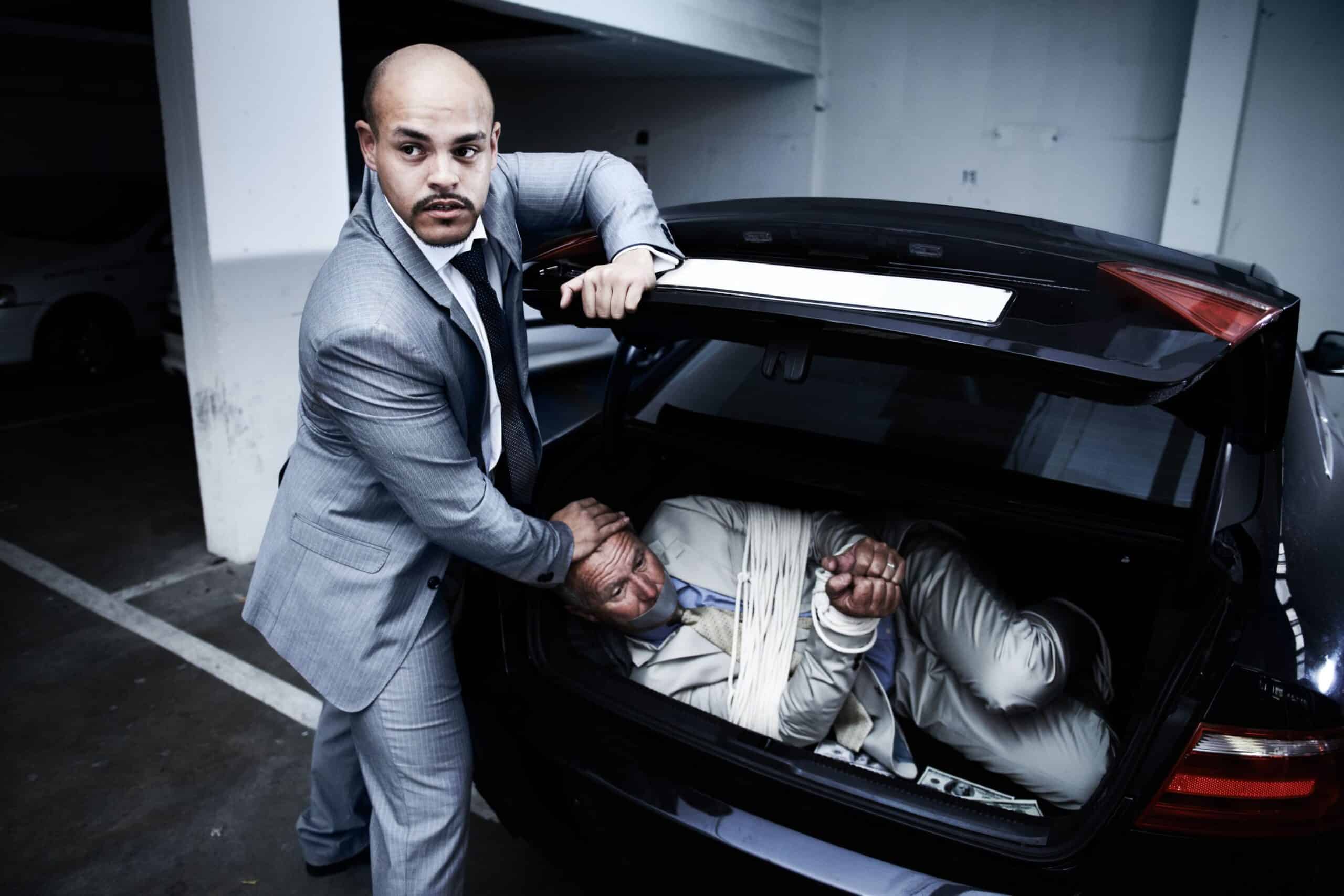What Everyone Needs to Know about Minnesota DWIs
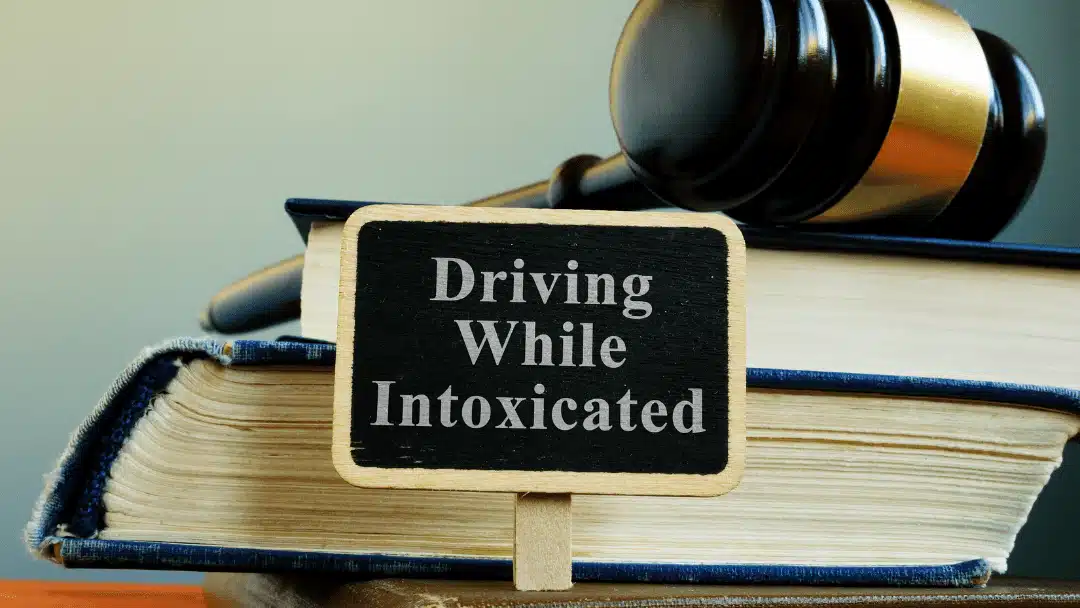
Andrew & Poole, P.A.
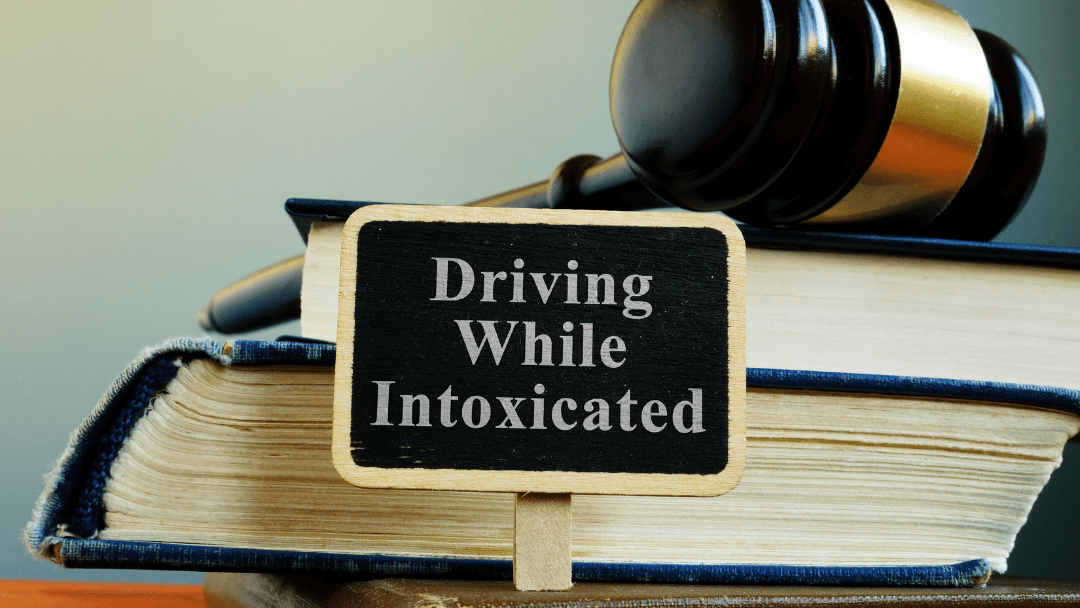
It’s the moment everyone dreads. You were just headed home after a night out having fun with your friends, but then it happens: lights. Sirens. And the next thing you know the police officer is asking you to take a blood alcohol test.
No one wants to be hit with a DWI charge in Minnesota. Not only are the consequences severe, the laws surrounding DWIs in Minnesota are also complicated and confusing. It’s only a short trip from getting charged to being convicted, and that’s where things really get bad.
But it doesn’t have to end this way. There are ways to fight back against a DWI charge in our state. It starts with understanding the law and how our criminal justice system treats these kinds of cases.
Here’s what you need to know about driving while impaired in Minnesota, including the penalties you can potentially face if convicted, and what to do to give yourself the best chance at beating your charge.
Driving While Impaired: What Is It According to MN Law?
In Minnesota, a DWI or DUI is defined as operating, being in physical control of, or driving a motor vehicle while you are:
- Under the influence of drugs or alcohol
- Under the influence of a substance you know impairs your ability to drive
- Operating a vehicle with a blood alcohol content of 0.08 percent or higher
- Have any amount of a Schedule I or II drug in your system
What Is Defined as a Motor Vehicle in Minnesota?
Many people assume that the term motor vehicle only applies to vehicles driven on the road. While those are certainly included in the term, it expands beyond that under the law for DWI offenses.
The following vehicle also qualify as motor vehicles in our state, and operating one impaired can lead to a DWI charge:

- Commercial work vehicles
- Boats (with the exception of canoes)
- Off-road vehicles such as snowmobiles or ATVs
In fact, any device that is not self-propelled can be defined as a motor vehicle in Minnesota.
How Common Are DWIs in Our State (and Who Is Getting Them)?
There are all kinds of stats out there on Minnesota DWIS, from the total number of incidents to much more granular data, such as how many occur each month, which days of the week see the most incidents, and more.
Below, we’re going to share just a few charts from the Minnesota Department of Public Safety’s 2018 report detailing impaired driving facts from 1998-2017:
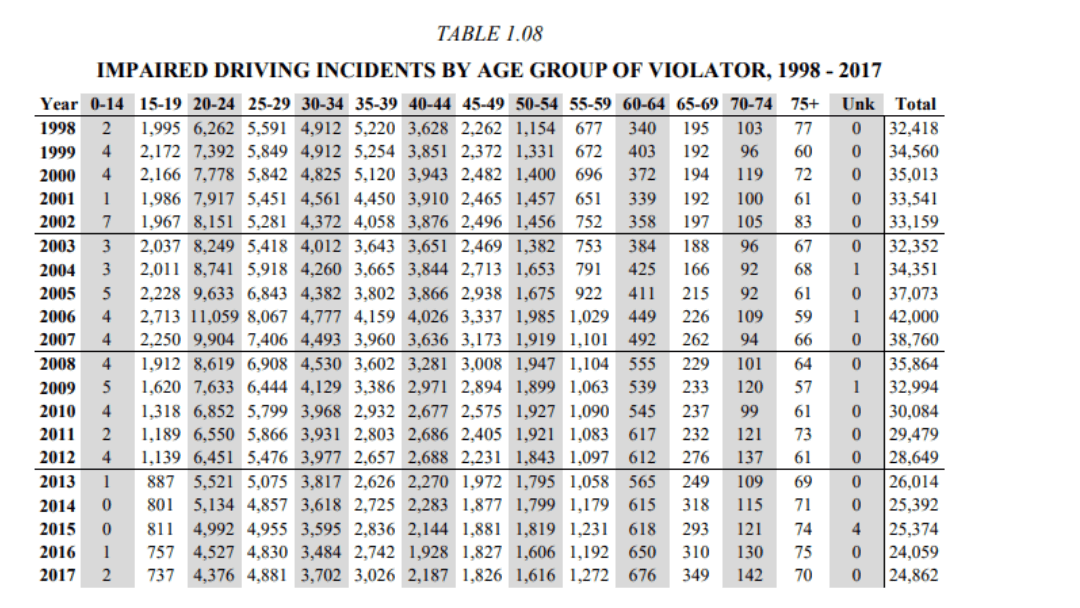
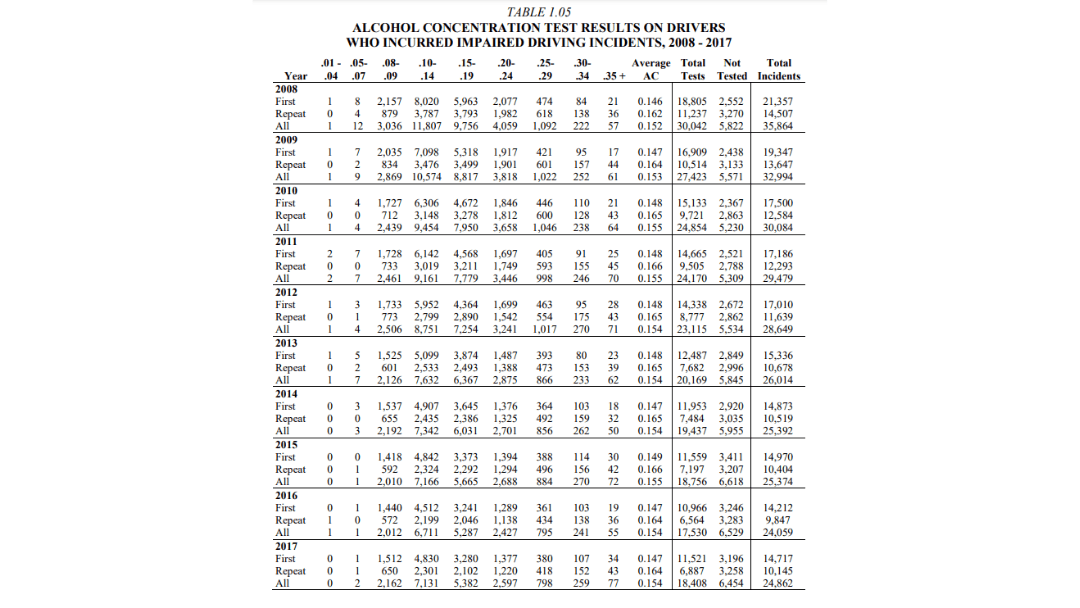
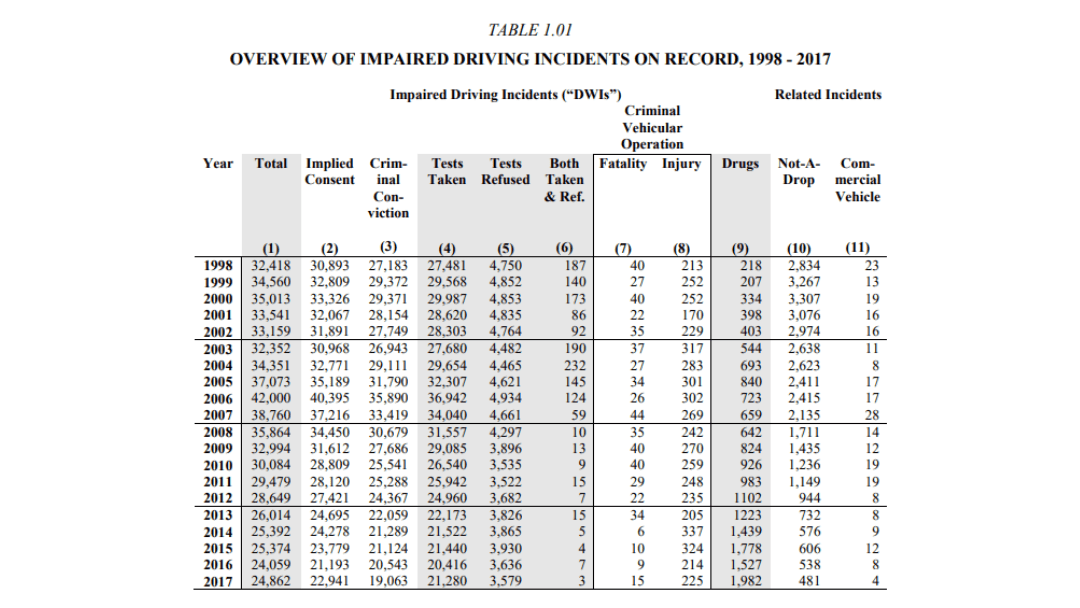
Minnesota Impaired Driving Facts 2017 Source: Minnesota Department of Public Safety 2018
Taken together, what do these charts tell us about DWIs in our state?
First and foremost, we’re headed in the right direction overall, with numbers declining in all three charts from over 30,000 in 1998 to less than 25,000 in 2017. That’s a good sign.
Secondly, the people who are tested are drinking about the same amount. In 2008, average BAC was .142. In 2017, that average had just barely climbed to .154.
Lastly, by far the age group that gets the most DWIs is from 20-29. Before 2013, 20-24 actually had a huge lead, but since then those numbers have dropped significantly to more or less mirror the 25-29 age group.
In other words, overall drunk driving charges are down, people are drinking about the same amount, and twentysomethings are responsible for most of the impaired driving on our roads.
Not exactly surprising information, but potentially good to know for profiling reasons if you are a young adult who is pulled over and charged.
Do You Have to Submit to a Breath Test in Minnesota?
When you’re stopped for a suspected DWI in Minnesota, many people wonder if you are required to take a breath test. The answer is yes… and no.
Under Minnesota law, when you operate a vehicle you are subject to the law of implied consent. That means by driving on the roads of our state, you consent to chemical tests to determine if drugs or alcohol are present in your system.
Specifically, you are legally required to submit to testing if the law enforcement officer has probable cause to believe you are driving while impaired and one of these other conditions exists:
- You are lawfully arrested for a DWI
- You were involved in a collision that resulted in injury, death, or property damage
- You refused to take a preliminary breath test at the scene
- The preliminary breath test showed you had a blood alcohol content above the legal limit of 0.08 percent
In fact, quite a few people have been convicted simply for refusing to test:
State Convictions for Refusal to Test Source: Driver and Vehicle Services and MNIT 9/2018
The officer is required to tell you the consequences of refusing the test. They must also advise you of the right to contact an attorney and provide you with a reasonable amount of time to do so.
You cannot, however, use this as a tactic for stalling the test, so generally, only about 30 minutes is allowed.
However, you do have the right in our state to refuse a preliminary breath test (PBT) if an officer wishes to administer one to you in the field. Just be aware of the consequences that come with choosing not to take the secondary breath or chemical test.
Penalties for Test Refusal
If you refuse to take a chemical test when suspected of a DWI, then there will be criminal as well as administrative penalties.
Criminal Penalties
In most cases, those who are being accused of DWIs for the first time will only be charged with a misdemeanor. However, if it’s your first offense and you refuse a breath test, the charge becomes a gross misdemeanor and increases the penalty.
You can serve up to 12 months in jail and be made to pay fines of $3,000 for a first DWI offense with a refusal to take a test. If it’s your second DWI, then you may lose your vehicle as a result.
Administrative Penalties
Refusal to take a chemical test can trigger the loss of your driver’s license for a period of one to six years.
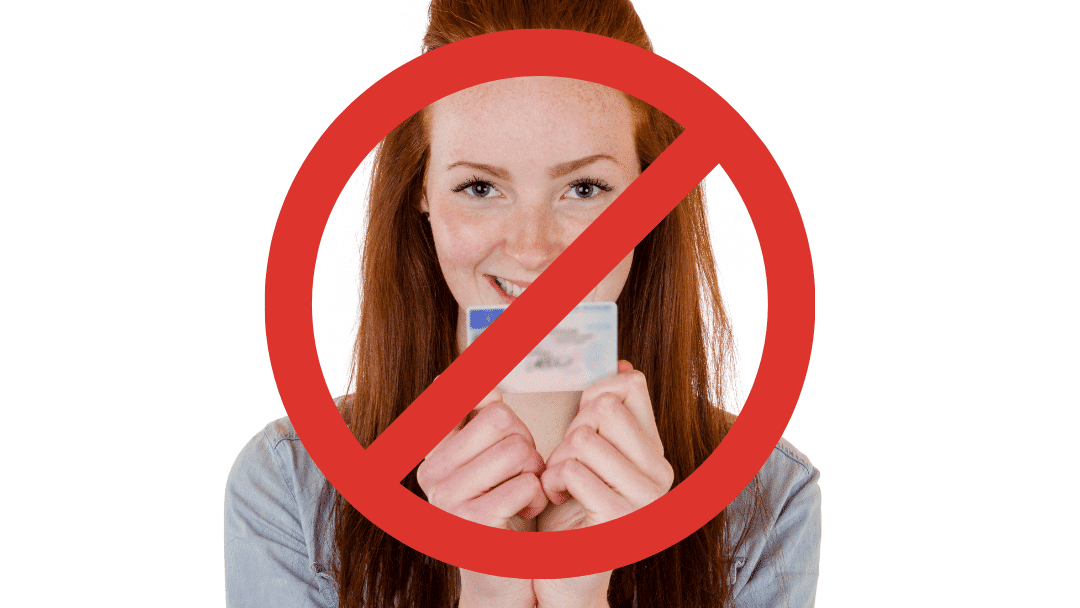
How long your license is taken away depends on your DWI history, but if you refuse a test it can result in a longer period of time than if you had simply taken the test and failed it.
Penalties for DWI in Minnesota
If you are charged with a DWI in Minnesota, you will also face criminal and administrative penalties. How severe these penalties are depends on what aggravating factors are involved in your case.
The judge will look at aggravating factors such as these in order to determine your sentence if convicted:
- Any record of a DWI in the past 10 years
- A blood alcohol content of 0.16 percent or higher
- The presence of a minor under age 16 in the car with you at the time of the DWI
Criminal Penalties
Criminal penalties will be imposed if you are convicted of a DWI. The state of Minnesota has four levels of DWI penalties. Level one is the most serious, while level four is the least serious.
The severity of these penalties increases when there are any aggravating factors present in the case. Possible penalties for DWI convictions in Minnesota include:
Level Four
Fourth-degree DWIs are misdemeanors. They can send someone to jail for up to three months and make them responsible for fines up to $1,000.
Level Three
A gross misdemeanor, third-degree DWIs can send someone to jail for up to 12 months and require fines to be paid up to the amount of $3,000. This level of offense generally involved at least one aggravating factor.
Level Two
Also known as second-degree, this level of DWI is also a gross misdemeanor. It is punishable by up to 12 months in jail and fines of as much as $3,000. This level of offense involves at least two aggravating factors.
Level One
This first-degree DWI is a felony that is punishable by as many as seven years in prison and fines of up to $14,000. This level of offense usually involves several prior DWIs or a felony for impaired driving.
DWIs are considered felonies when it is the fourth DWI within a 10-year period or if you’ve ever been convicted of a felony DWI before.
Administrative Penalties
Administrative penalties are meant to provide swift consequences for those involved in DWIs in our state. Administered by the Minnesota Department of Public Safety, these penalties are imposed soon after you are arrested for a DWI. They apply even if you are never found guilty of the crime.
These penalties include:
- Cancelation or revocation of your driver’s license – After a DWI arrest, your driver’s license will be automatically suspended, but most of the time you are given a temporary license for one week before that will go into effect. You may also be able in some situations to appeal the suspension of your license. For a first offense, you can lose your license for 90 days. For the second offense, up to one year, and a third offense will result in a three-year suspension.
- Impoundment of your license plate – Some offenders will have their license plates seized by police or be asked to surrender their plates. This can apply to vehicles you operate or own, either alone or jointly with another person.
- Forfeiture of your vehicle – Sometimes, your vehicle may be completely forfeited if it was used in a crime, such as a subsequent DWI conviction within a certain amount of time.
These types of administrative penalties are a good reason to get a skilled Minnesota DWI attorney on your case as soon as possible after you are arrested.
Substance Abuse Evaluation

Every DWI offender in Minnesota must complete an evaluation for chemical dependency before sentencing.
If you are a repeat DWI offender, then you must complete the impaired driving repeat offender program as well. This program can include house arrest, random chemical screenings, supervised probation, and the installation of an ignition interlock system on your vehicle.
Common Questions About Minnesota DWIs
As mentioned above, DWI laws are complicated, and people tend to have a lot of questions about how the law can impact them. Here are a few of the most common questions.
Can You Get A DWI Charge For Sleeping In Your Car?
It may surprise some people to learn this, but you can get arrested for a DWI even if you’re trying to “sleep it off” in your car.
The DWI law in Minnesota states that being in physical control of a motor vehicle is enough for a charge. You don’t actually need to be operating the vehicle, so being in the driver’s seat while intoxicated — asleep or not — can cause issues.
What Should You Say If You’re Pulled Over?
Officers have to have a reason to pull you over. In many cases, speeding will get you pulled over, but that’s not the only thing that may present a clue for officers when it comes to driving while impaired.
Other things they look for include:
- Driving under the speed limit by 10 mph or more
- Driving with your headlights off at night
- Rapidly decelerating or accelerating the vehicle
- Weaving between lanes or within one lane
- Taking a wider turn than normal
- Swerving
- Following vehicles in front of you too closely
- Turning abruptly or making illegal turns
- Stopping at inappropriate times
- Responding too slowly to traffic signals
- Almost hitting another vehicle or object
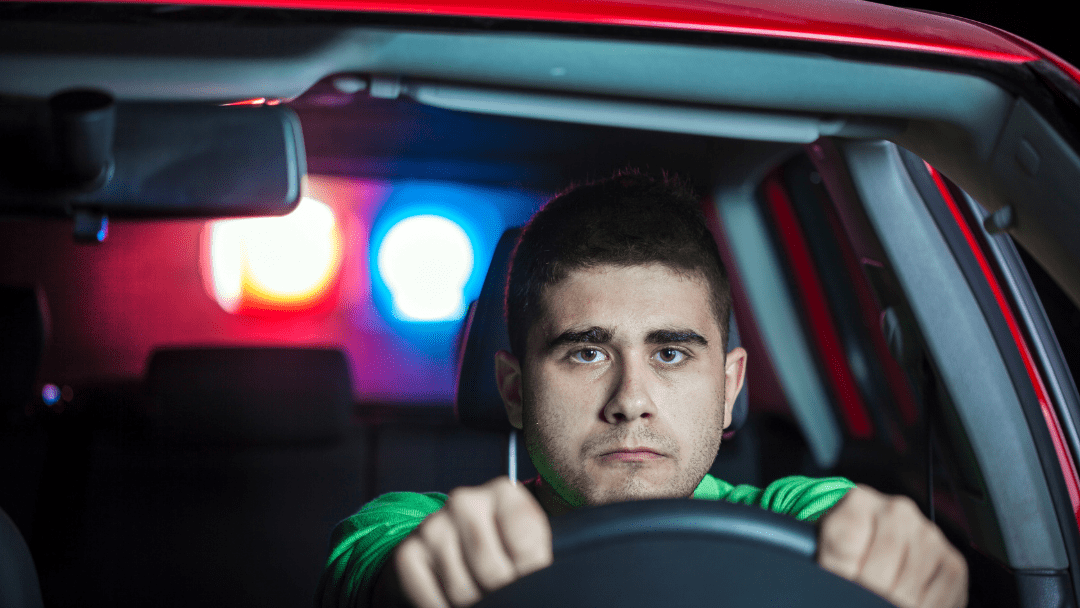
If an officer pulls you over and suspects you are impaired, they may ask you if you’ve been drinking. You are not legally required to answer this question.
You can always say that you prefer to speak to an attorney first, but it is worth noting that you have to be placed under arrest formally before you can request a lawyer.
You can ask for a lawyer after being stopped, but you will still have to submit to chemical or breath tests under the implied consent law at the police station once placed under arrest.
Do You Have To Take a Field Sobriety Test?
The implied consent law has already been touched on here, but it’s an important law to remember. That’s because refusing a chemical or breath test is itself a crime.
However, you can refuse to consent to a field sobriety test where they make you do physical activities such as one-leg stands and finger-to-nose touches.
What Is a B-Card?
A B-card is a license issued to a driver who previously lost their license but is now rehabilitated. If you violate any of the conditions that come with the B-card, such as using drugs or alcohol, then you immediately lose it and are subject to criminal penalties.
How Can You Get a Vehicle That Has Been Forfeited or Seized Back?
If you get a second DWI in a 10-year period, you can face having your vehicle taken in Minnesota. What makes it worse is that you can have your car taken away if you loan it to someone who then gets a DWI. In those cases, how do you get your vehicle back?
The laws related to the forfeiture of vehicles in Minnesota are complicated. If your vehicle has been seized in the wake of a DWI offense, then it’s important to contact an attorney to help you get it back.
What If You’re Under 21?

Even if you are not of legal drinking age, you are still subject to the DWI laws in Minnesota. On top of that, anyone under the legal drinking age of 21 cannot have any amount of alcohol in their system when operating a vehicle, even if it’s well below the legal limit of 0.08 percent.
For a first-time underage drinking offense, a 30-day license suspension will be imposed. There are also extra penalties for 16- and 17-year-old drivers under something called Vanessa’s Law.
Any 16- or 17-year old convicted of a DWI is not eligible to receive their driver’s license until they turn 18. Then, they will be expected to repeat driver’s education for 90 days after having their license restored.
Defenses to Minnesota DWIs
Each DWI case in Minnesota is unique, so there is no one correct way to defend a case in court. Your Minnesota personal injury attorney will carefully evaluate the details of your individual case and then discuss with you the best defense strategy.
Some of the most common DWI defense strategies include:
- An improper or invalid traffic stop
- A mishandling of urine or blood samples by police
- A breath test that was administered improperly
- Inaccurate field sobriety tests
- Violation of your rights by police
- Incorrect procedures by police

Remember, you are presumed innocent until proven guilty in the eyes of the court. Therefore, it’s up to the prosecution to prove the case against you – that you were operating a vehicle under the influence of drugs or alcohol and were impaired while doing so. An experienced attorney can help you to navigate this situation and get the best outcome possible for your case.
About the Author:
Andrew T. Poole is a Minnesota native who has served in the Army for more than 18 years and is currently a JAG lawyer in the Army Reserves in addition to serving as a partner at LaCourse, Poole & Envall. He has handled thousands of criminal and family law cases over the course of his career and has a firm belief that all hardworking Minnesotans should be entitled to the best possible legal counsel. Mr. Poole boasts a 10/10 Superb rating on Avvo, is Lead Counsel rated, and has been recognized multiple times by SuperLawyers, National Trial Lawyers, and others for his work.

